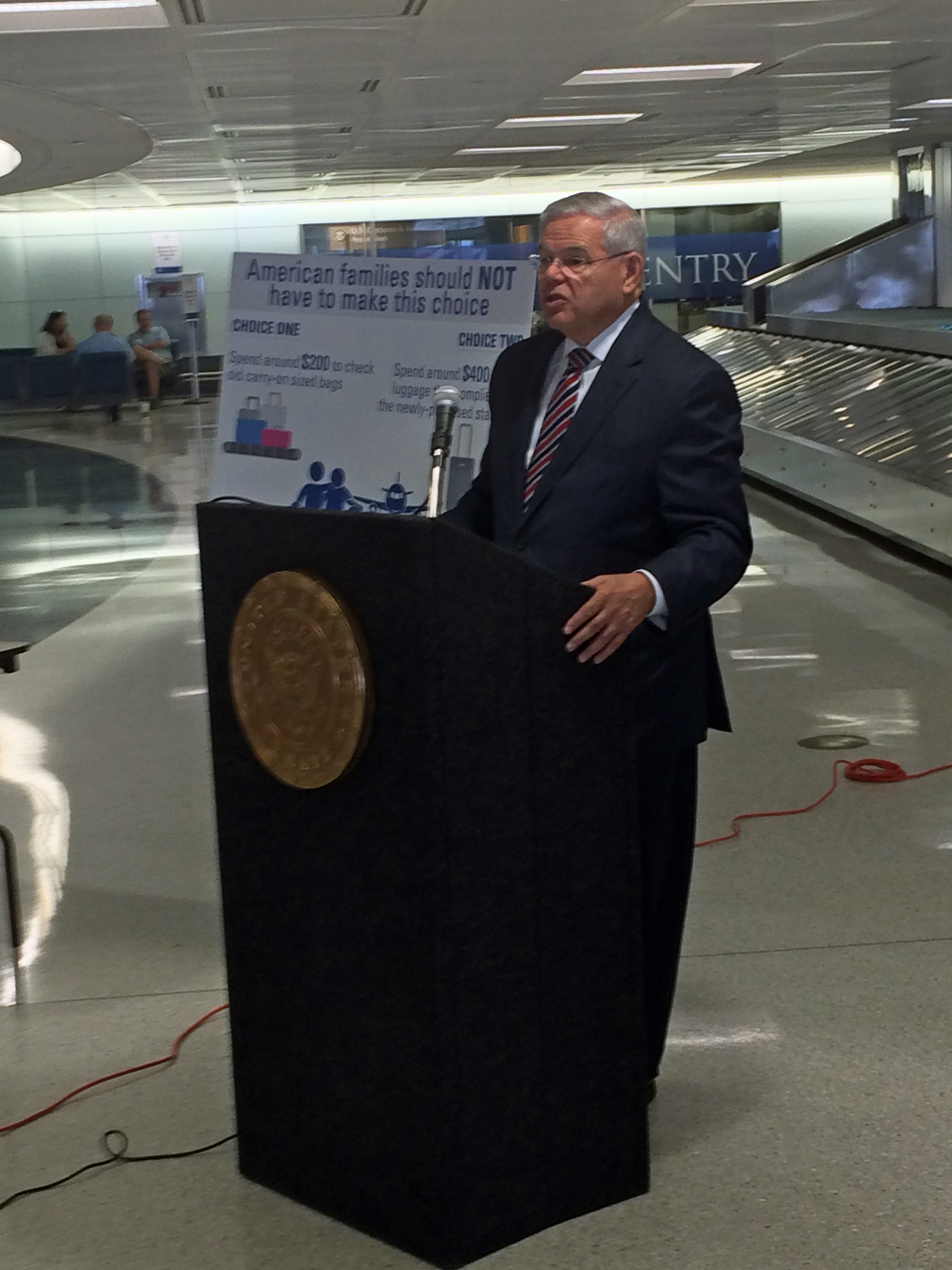WASHINGTON, DC – U.S. Senator Bob Menendez (D-N.J.) today recognized the International Air Transport Association (IATA) for reassessing its ill-conceived proposal to shrink carry-on bag sizes, which would force many air travelers to check their bags and pay an additional fee to fly. The guideline would have trimmed the size of allowable carry-on luggage by over 20% for some American airlines.
“Air travelers have had enough, enough bait-and-switch, enough with getting nickel-and-dimed for every conceivable service,” said Sen. Menendez. “After standing up for consumers and saying ‘no’ to the airline industry, I am pleased that the IATA has done the right thing and parked its proposal in the hangar. Fliers who own previously-approved carry-on bags should not have had to cough up another baseless fee to the airline industry.”
Today, the Geneva, Switzerland-based IATA announced that it will pause the rollout of its so-called “Cabin OK” initiative that called for cutting the allowable size of carry-ons to 21.5” x 13.5” x 7.5" inches. It ordered “a comprehensive reassessment in light of concerns expressed, primarily in North America.”
Yesterday, Sen. Menendez sent a letter, along with several of his Senate colleagues, to the CEOs of United, Delta, American, JetBlue, Virgin American, Hawaiian, Alaska, Spirit, Frontier, and Allegiant Airlines calling on them to give their customers a break on checked-bag fees, if they decide to adopt the IATA proposal. The letter was cosigned by Sens. Charles E. Schumer (D-N.Y.), Sherrod Brown (D-Ohio), Amy Klobuchar (D-Minn.), Jeffrey A. Merkley (D-Ore.), and Joe Manchin, III (D-WVa.), and requested a written response from each airline detailing whether it plans to adopt the new IATA standard, and if so, whether it intends to eliminate or reduce checked-bag fees to help passengers during the transition.
“Traveling with luggage is a basic component of air travel and almost always a necessity—not a luxury,” the Senators wrote. “If your airline intends to reduce the size of carry-on bags allowed in the cabin, we expect that you will mitigate any additional costs to customers by allowing them to check their luggage without charge.”
 On Monday, Sen. Menendez held a news conference at Newark-Liberty International Airport, where he demonstrated to reporters the difference in luggage size, and stressed that the airline industry is already profiting from checked-bag fees and should not place another burden on the flying public.
On Monday, Sen. Menendez held a news conference at Newark-Liberty International Airport, where he demonstrated to reporters the difference in luggage size, and stressed that the airline industry is already profiting from checked-bag fees and should not place another burden on the flying public.
“Cutting the size of carry-ons will inevitably force more passengers to check their bags for a fee, driving up the cost to fly,” said Sen. Menendez. “If the airlines’ decision to trim the size of carry-ons is really about improving customer service, then they should in turn give them a break on checked-bag fees, otherwise it’s just a bait-and-switch.”
U.S.-based passenger airlines made $3.5 billion in tax free baggage fees in 2014, and since 2008 the industry, has racked up over $21 billion in the fees, according to figures released by the U.S. Department of Transportation in May. Moreover, the IATA has also predicted that global airlines will make nearly $30 billion in profits next year—with half of that total expected to come from North American carriers.
###
